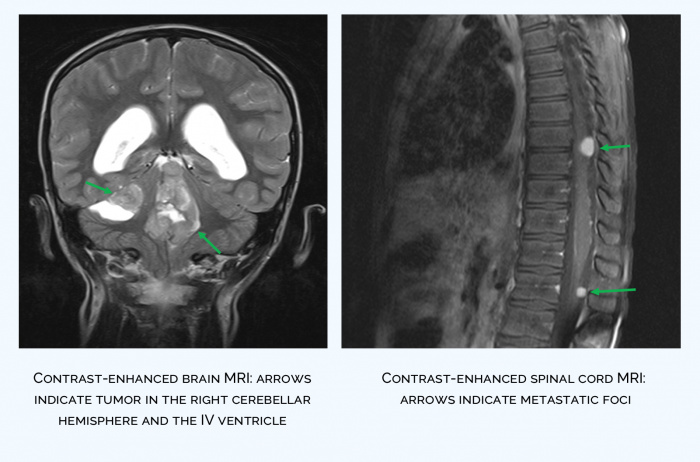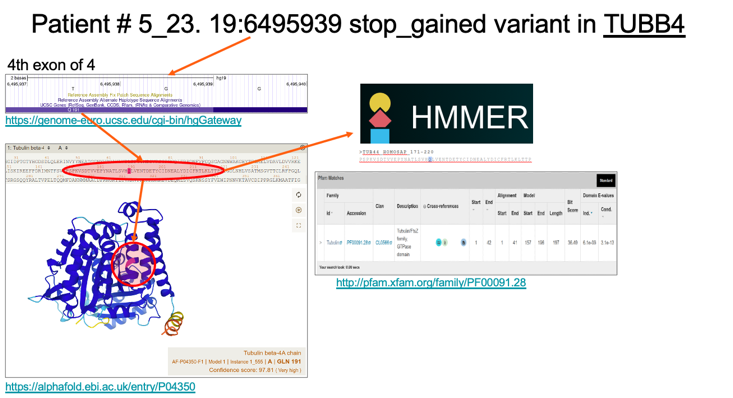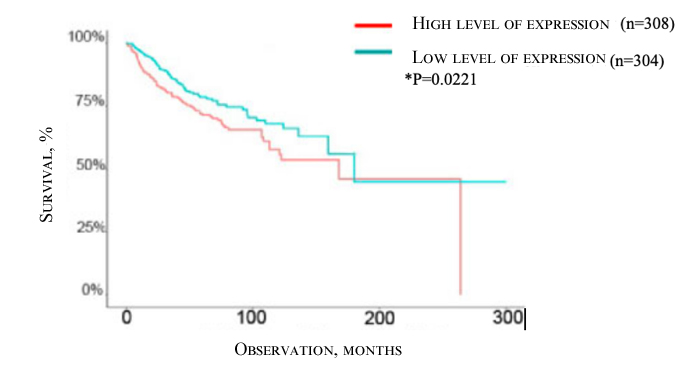
Scientists identify tumor cell mutations that lead to disease onset
Researchers at the Research Laboratory of Pediatric Neuroimmuno-Oncology of WCRC for Personalized Medicine received the first results of whole-exome DNA sequencing of tumor material and blood from patients with malignant CNS tumors. Using whole-exome sequencing, the coding regions of all the genes are captured and sequenced simultaneously.
Identified pathogenic mutations in tumor cells can be the cause of disease onset and determine the prognosis and choice of treatment tactics in each individual patient.
One of the clinical examples is the identification of a significant, previously not published driver mutation in the TUBB4A gene in tumor tissue (medulloblastoma). This gene encodes a neuron-specific protein of the same name. Proteins of this group are important components of the cytoskeleton (cellular scaffold), take part in the processes of mitosis, intracellular transport, ciliary and flagellar motility, as well as in the morphogenesis of neurons. When specific mutations occur in the TUBB4A gene, hypomyelination and atrophy of the basal ganglia and cerebellum develop.
Although there is no clear data on the role of this gene in medulloblastoma oncogenesis, data have been obtained on the association between the level of its expression in tumor tissue and patient survival.


To date, it is not possible to use the same standard treatment procedures to all patients due to tumor variety even within the same histological type. This emphasizes the prospects of routine use of whole-exome sequencing methods for individualized anticancer therapy.
11.08.2022
